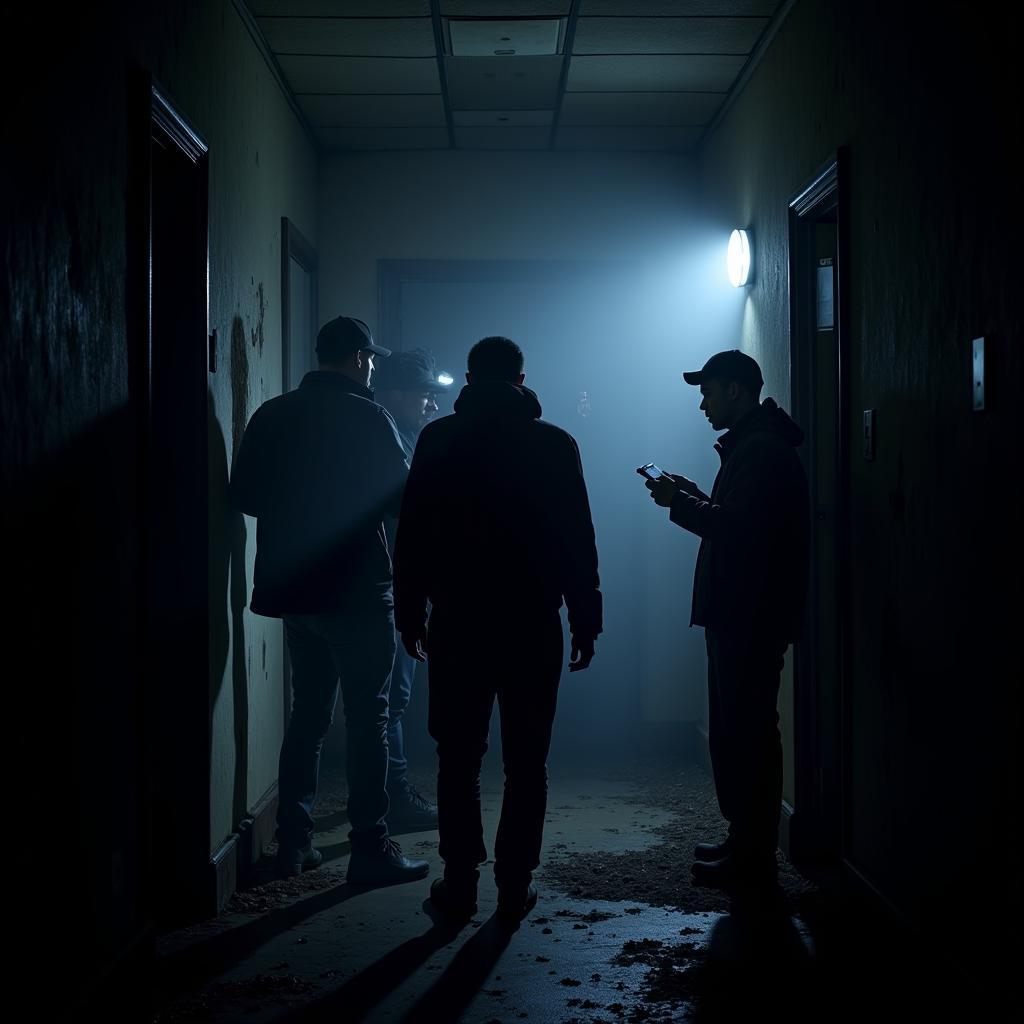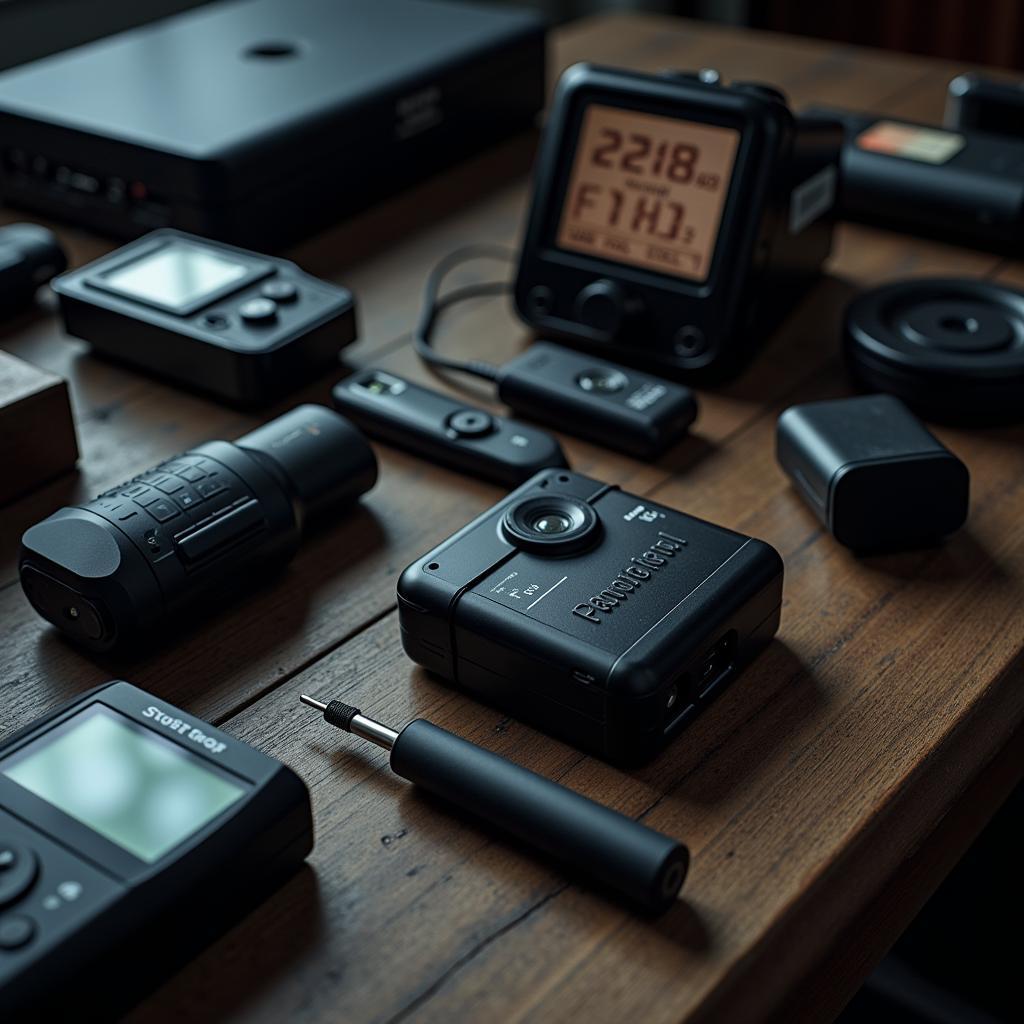Praxis Research. It’s a term that echoes through the halls of academia, but what does it mean within the realm of the paranormal? In essence, praxis research goes beyond simply observing or theorizing about supernatural phenomena. It’s about actively engaging with the unexplained, testing hypotheses in real-world settings, and using the resulting insights to deepen our understanding of the unknown.
Bridging the Gap Between Theory and Experience
 Paranormal Praxis Research in Action
Paranormal Praxis Research in Action
For too long, paranormal research has been caught between two extremes: armchair speculation and anecdotal evidence. Praxis research offers a way to bridge this gap by applying a more hands-on, empirical approach. It acknowledges that personal experiences, while valuable, can be subjective and difficult to replicate. Instead, praxis research emphasizes systematic investigation, data collection, and critical analysis.
Key Principles of Praxis Research in Paranormal Investigation
Praxis research in the paranormal field is guided by several core principles:
- Actionable Research: The focus is on conducting investigations that directly address specific questions or test pre-defined hypotheses about paranormal phenomena.
- Experiential Learning: Researchers actively engage with potentially haunted locations, using a combination of traditional investigative tools and innovative techniques.
- Iterative Process: Findings from one investigation inform the design and execution of future research, leading to a continuous cycle of learning and refinement.
- Triangulation of Data: Multiple sources of evidence, such as EMF readings, EVP recordings, and eyewitness accounts, are collected and analyzed to gain a more comprehensive understanding.
How Praxis Research is Advancing Paranormal Understanding
 Advanced Paranormal Research Equipment
Advanced Paranormal Research Equipment
By embracing a more rigorous and action-oriented approach, praxis research is helping to move paranormal investigation away from subjective interpretations and towards a more objective and evidence-based discipline. Here’s how:
- Developing Standardized Protocols: By establishing clear and consistent methods for conducting investigations, researchers can minimize variability and increase the reliability of their findings.
- Evaluating the Effectiveness of Tools and Techniques: Praxis research allows for the systematic testing and refinement of investigative tools and techniques, separating those that produce meaningful results from those that are less effective.
- Identifying Patterns and Correlations: Analyzing data from multiple investigations can reveal patterns and correlations that might not be apparent from isolated incidents, potentially leading to new insights into the nature of paranormal activity.
The Future of Paranormal Research: Embracing the Praxis Approach
As the field of Paranormal Research continues to evolve, the principles of praxis research will become increasingly vital. By combining practical experience with rigorous methodology, researchers can strive to unlock the secrets of the unexplained and shed light on some of the most enduring mysteries that have captivated humanity for centuries.
“Praxis research is about getting our hands dirty, so to speak,” says Dr. Emily Carter, a leading researcher in parapsychology. “It’s about moving beyond speculation and actively seeking evidence in a systematic and ethical way. That’s how we’ll truly advance our understanding of the paranormal.”
 Collaborative Paranormal Research Team Analyzing Data
Collaborative Paranormal Research Team Analyzing Data
Praxis research offers a path forward, a way to move beyond the shadows of doubt and into the light of understanding. It’s a journey that demands curiosity, courage, and a commitment to seeking truth, no matter where it may lead.